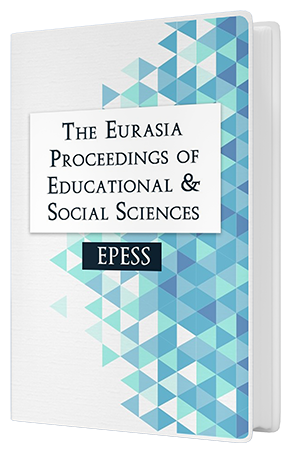Individual Seeking Identity in the Digital World
DOI:
https://doi.org/10.55549/epess.995328Keywords:
Digitalization, world, individual, identityAbstract
At the beginning of the remarkable developments in the 21st century in the world, it can be expressed as the fact that digital applications have become an indispensable part of human life. It can be said that these practices affect human life in two ways, positively and negatively. Societies or individuals with a strong sense of self and identity, who evaluate these practices in terms of individual and social awareness, can see the reflections of many advantages in their lives thanks to these practices. However, it can be stated that the meeting of identity with the digital era offered by the globalizing world influences the thinking system of the individual while questioning the concept of self through these applications throughout his life. It can be said that with the digital age, the individual's distancing from the social environment he / she lives in has both positively and negatively affected the level of self-questioning. In this study, the quest for self-knowledge and recognition of individual, who is under the influence of the digitalized world, has been evaluated. In this study, in which the scanning model was used, the results of the studies conducted similar to the subject of the study were discussed and evaluated. Note: This study is supported by the Scientific Research Projects Coordination Unit of Inonu University with the Normal Research Project coded SBA-2019-1755. As a result of the study, the study subject was evaluated from different angles and striking results were achieved.Downloads
Published
Issue
Section
License
Copyright (c) 2021 The Eurasia Proceedings of Educational and Social Sciences

This work is licensed under a Creative Commons Attribution-NonCommercial-ShareAlike 4.0 International License.
The articles may be used for research, teaching, and private study purposes. Any substantial or systematic reproduction, redistribution, reselling, loan, sub-licensing, systematic supply, or distribution in any form to anyone is expressly forbidden. Authors alone are responsible for the contents of their articles. The journal owns the copyright of the articles. The publisher shall not be liable for any loss, actions, claims, proceedings, demand, or costs or damages whatsoever or howsoever caused arising directly or indirectly in connection with or arising out of the use of the research material. All authors are requested to disclose any actual or potential conflict of interest including any financial, personal or other relationships with other people or organizations regarding the submitted work.




